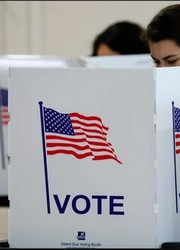In the early hours of the Feb. 24, 6 a.m. Moscow Time, Russian President Vladimir Putin announced what he called a “special military operation” in Eastern Ukraine. In this speech, Putin stated that Russia seeks the “demilitarization and denazification” of Ukraine.
Shortly after Putin’s announcement, ballistic and cruise missile strikes were reported in the Ukrainian cities of Odessea, Kharkiv, Dnipro, the capital Kyiv, and in areas part of the Donbas region, where conflict has been ongoing since 2014. Ukrainian officials also reported Russian naval landings in the Black Sea port cities of Odessa and Mariupol.
Around 6:48 a.m. local time, the first Russian Army ground forces entered Ukraine from the town of Senkivka, on the joint border of Belarus, Russia, and Ukraine.
By around 8 a.m. local time, Ukraine’s Border Forces stated that attacks had taken place or were ongoing near Luhansk, Sumy, a strategically important city with a highway that links to Kyiv, Chernihiv, Zhytomyr, as well as with Russian forces invading from Crimea, primarily in the bordering Kherson Oblast—meaning Ukraine was sustaining an invasion from its north, east, and south.
Proceeding from the opening phases of the invasion, according to Live Universal Awareness Map and other sources, Russian forces seized control of the Chernobyl Exclusion Zone, Snake Island in the Black Sea, Antonov Airport in Kyiv Oblast, Konotop City, alongside various smaller villages and settlements. On March 1, battles and sieges are ongoing in the cities of, including the aforementioned, and not limited to, Sumy, Kherson, Kharkiv, Mariupol, Starobilsk, Mykolaiv, Zaporizhzhia, Ohtyrka in which the Russians have allegedly deployed a vaccumn bomb, and an offensive in the direction of Kyiv.
The reaction to the invasion has been well pronounced. Prior to Russia’s invasion, select countries opted to enact sanctions on Russia for its recognition of the Donetsk People’s Republic and Luhansk People’s Republic on Feb. 21. With the commencement of the invasion, a large coalition of countries applied sanctions on Russia, pertaining to individuals, notably Russian oligarchs and Putin himself, banks and their functions, monetary exchange platforms, alongside restrictions placed on exports and imports.
Most of Europe and Canada have issued orders to prevent Russian civil aviation from using their airspace.
The West has also opted to cut certain Russian banks from SWIFT, a global financial system that allows for international banks to permit payments and communications between each other. The US and its European partners are also working on ensuring Russia’s Central Bank cannot access over $630 billion held in foreign currency reserves, half of which are in dollars and euros. Germany also suspended the certification of the Nord Stream 2 pipeline with Russia.
Switzerland, a country with a long standing tradition of neutrality, has also opted to sanction Russia in light of its actions in Ukraine.
Reactions in Russia to the news of the sanctions include a run on banks, with Russian citizens seeking to withdraw as much cash as possible. As of March 1, the Russian ruble has declined drastically, worth less than 1 cent. British Prime Minister Boris Johnson also announced that British ports will be closed to Russian shipping, with policymakers in the European Union considering a similar move.
Outside of economic and airspace measures, many European countries and the United States are continuing to arm Ukraine with lethal and non-lethal aid. Notably, Germany has opted to supply Ukraine with lethal arms for the first time since the crisis began, marking a major policy shift. Sweden and Finland, two European states who are not members of NATO, have also sent Ukraine military aid, and debates have begun in their legislatures on the question of accession to NATO.
The European Union had also announced it would be supplying Ukraine with fighter jets, primarily from its eastern members who operate Sukhoi and Mikoyan platform aircraft, which are the types used in Ukraine. However this deal fell apart when its eastern members with said aircraft announced there was no such deal.
On the topic of EU measures, the bloc opted to ban Russian state media outlets Russia Today and Sputnik from operating on their airwaves, while also agreeing to help aid Ukraine economically in the procurement of weapons.
Various private firms, such as Shell, UPS, and British Petroleum (BP), have also announced plans to suspend operations in Russia.
Russia and Ukraine, despite the fighting, have been in touch. On Monday, their diplomats met at the border with Belarus to discuss their issues, under the backdrop of Putin raising the readiness level of Russian nuclear forces. The talks lasted five hours, and no major announcements, breakthroughs, or a ceasefire were proclaimed.
Ukrainian President Volodymyr Zelenskyy, who has refused to evacuate from Kyiv amid the conflict, signed an application for an official request to join the European Union, a move that is sure to upset the Kremlin. Ukraine hopes for a second round of renewed talks in the near future.
Due to the nature of this conflict, The Outlook would like to continually remind its readers that certain news we publish may be outdated by the time of publication. While these pieces are written a day prior to publication, events have continued to move at a rapid pace. We urge readers to stay up to date with trusted sources.


